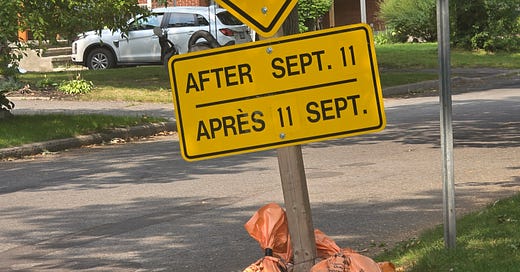Incompetent representation and judicial review
Incompetent representation as a breach of procedural fairness is a rare argument but recent cases in immigration law provide a useful framework
The first full week of September always feels busy, all of a sudden. Which is why this sign in my neighbourhood resonated, I guess.
Incompetent representation as a ground of judicial review
The argument that incompetent representation has led to procedural unfairness is not often raised in judicial review applications. I have often wondered why it is not…
Keep reading with a 7-day free trial
Subscribe to An Adjudicator’s Toolkit to keep reading this post and get 7 days of free access to the full post archives.



